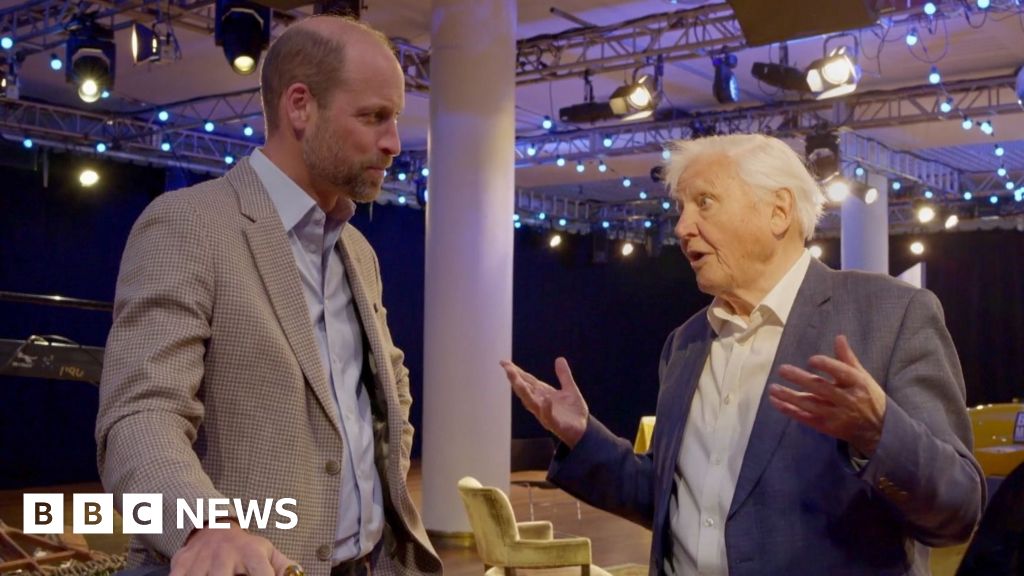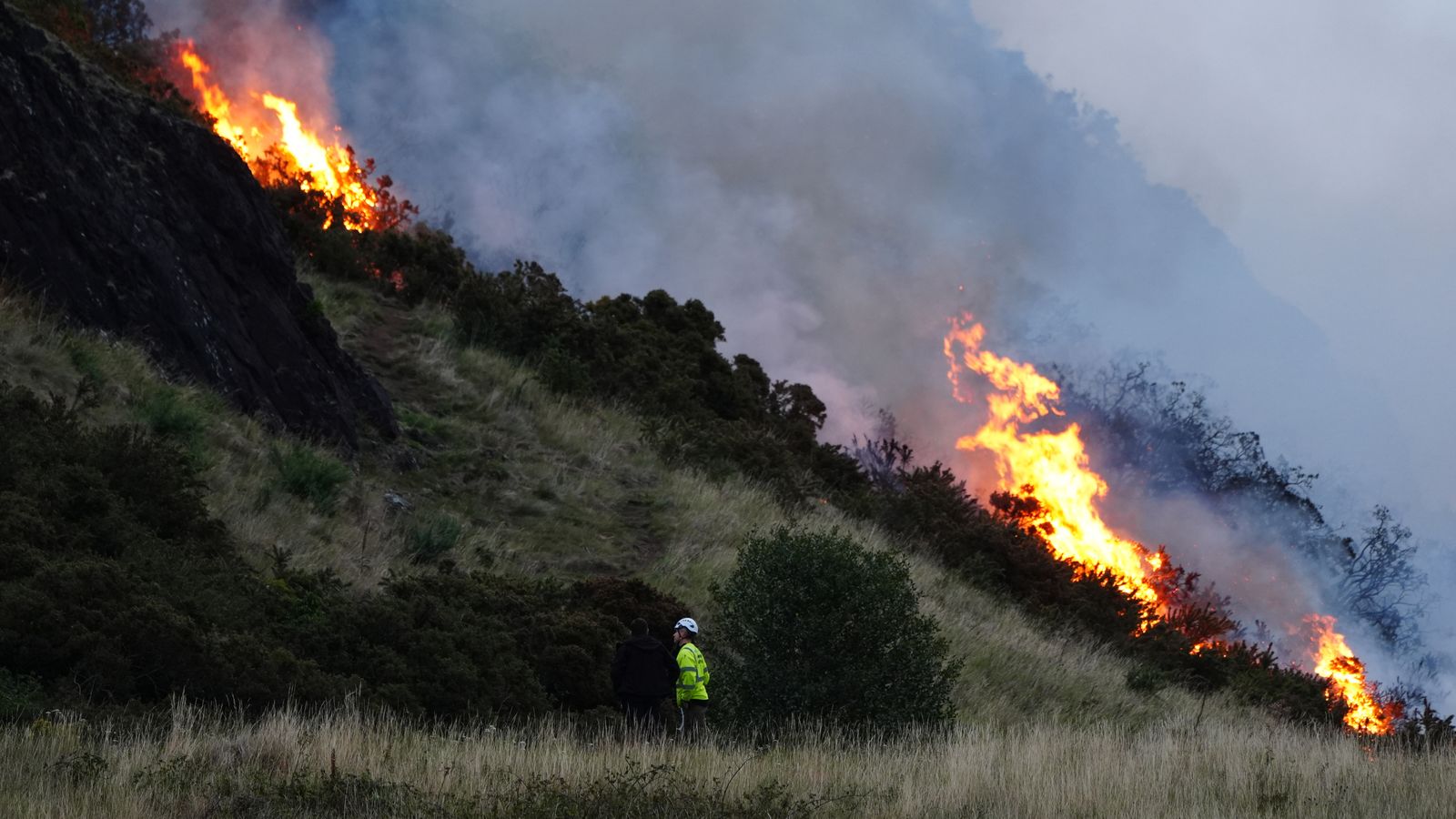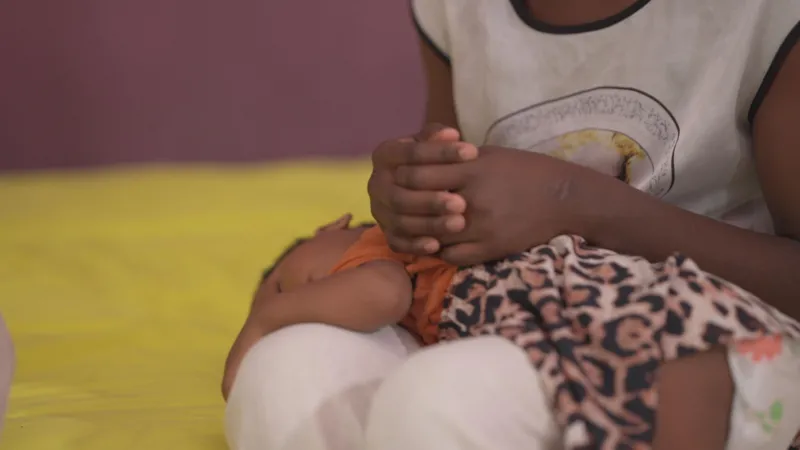Ocean damage unspeakably awful, Attenborough tells prince
Sir David Attenborough has told Prince William he is "appalled" by the damage certain fishing methods are wreaking on the world's oceans.

The Prince of Wales interviewed the TV naturalist ahead of a key UN Oceans conference which kicks off on Monday.
The world's countries are gathering for the first time in three years to discuss how to better protect the oceans, which are facing growing threats from plastic pollution, climate change and over-exploitation.
The UN's key aim is to get the High Seas Treaty - an agreement signed two years ago to put 30% of the ocean into protected areas - ratified by 60 countries to bring it into force.
"What we have done to the deep ocean floor is just unspeakably awful," said Sir David.
"If you did anything remotely like it on land, everybody would be up in arms," he said in the interview released on Saturday. It was conducted at the premiere of his new documentary, Ocean, last month.
The documentary draws attention to the potential damage from some fishing practices, like bottom trawling, for marine life and the ability of the ocean to lock up planet-warming carbon.
Governments, charities and scientists will come together at the UN Oceans Conference (UNOC) in Nice to try and agree how to accelerate action on the issues most affecting the world's seas.
Sir David said he hopes the leaders gathering for the UN conference will "realise how much the oceans matter to all of us, the citizens of the world".
Planetary life support system
The ocean is crucial for the survival of all organisms on the planet - it is the largest ecosystem, is estimated to contribute $2.5 trillion to world economies and provides up to 80% of the oxygen we breath.
The key aim for the UN is to galvanise enough support to bring the High Seas Treaty into force - including commitment from the UK.
Three years ago countries agreed to protect 30% of the world's oceans by 2030, across national and international waters.
International waters - or high seas - are a common resource with no ruling country so nations signed the High Seas Treaty in 2023 agreeing to work together to put a third of them into Marine Protected Areas (MPAs).
Since then only 32 countries have ratified the treaty - 60 are needed to bring it into force.
But many scientists and NGOs are worried MPAs will not be effective whilst practices like bottom trawling are still allowed within them.
"Our ocean is 99% of our living space on the globe, we have huge dependency on the ocean in every possible way, but bottom trawling does a lot of damage," Dr Amanda Vincent, Professor in Marine Conservation at The University of British Columbia told BBC's Inside Science.
Bottom trawling or dredging is currently allowed in 90% of the UK's MPAs, according to environmental campaigners Oceana, and the Environment Audit Committee (EAC) has called for a ban on it within them.
What is the UN High Seas Treaty and why is it needed?
But some fishing communities have pushed back on the assertion that certain fishing practices need to be banned in these areas.
"Bottom trawling is only a destructive process if it's taking place in the wrong place, otherwise, it is an efficient way to produce food from our seas," Elspeth Macdonald, CEO of Scottish Fisherman's Association told the BBC.
Scientists point to evidence that restricting the practice in some areas allows fish stocks to recover and be better in the long term for the industry.
-BBC







